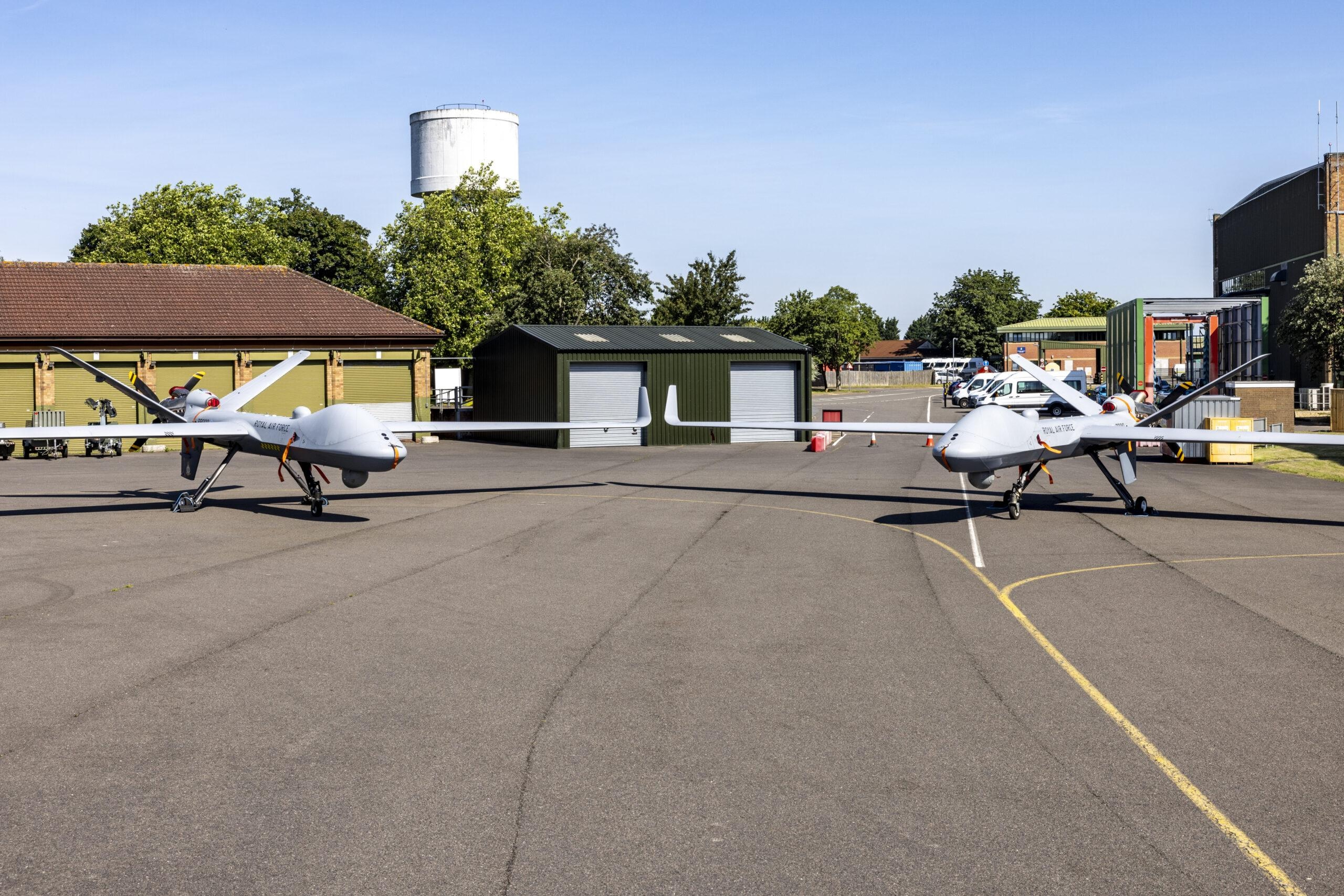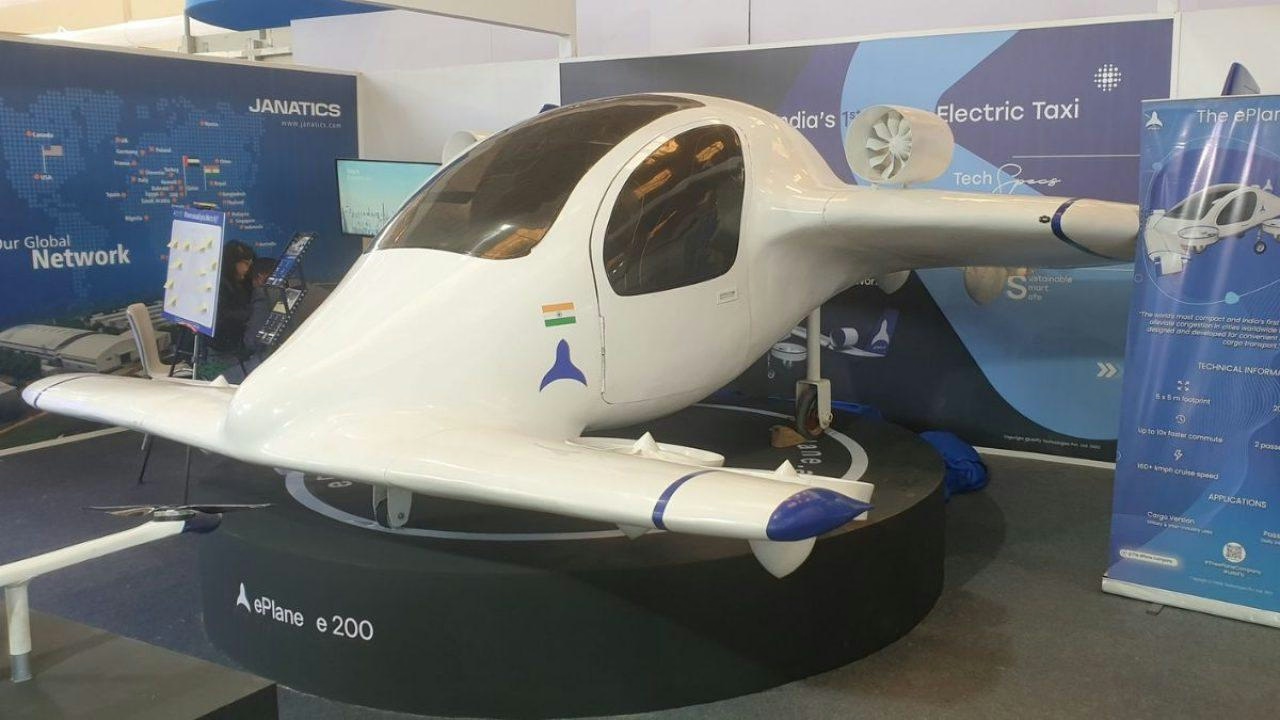AeroGenie — Your Intelligent Copilot.
Trending
Categories
UK Ministry of Defence Signs Support Contract with GA-ASI for Protector Drones

UK Ministry of Defence Signs Support Contract with GA-ASI for Protector Drones
The United Kingdom’s Ministry of Defence (MOD) has formalized a support and sustainment agreement with General Atomics Aeronautical Systems, Inc. (GA-ASI) to manage the logistics and maintenance of the Protector RG Mk1 Remotely Piloted Aircraft (RPA) system. Known as the UK Protector Availability and Support Solution (UK PASS), this contract is designed to provide ongoing operational support for the Protector RPAs, which have recently entered service with the Royal Air Force (RAF).
Advancing RAF’s Unmanned Capabilities
The Protector RPA, derived from GA-ASI’s MQ-9B SkyGuardian platform, marks a significant enhancement in the RAF’s unmanned aerial capabilities. The UK PASS contract, executed as a Direct Commercial Sale, encompasses not only the aircraft themselves but also the Certifiable Ground Control Stations and Synthetic Training Systems essential for maintaining operational readiness. Chris Dusseault, vice president of MQ-9B operations in Europe at GA-ASI, emphasized the importance of the agreement, stating that it enables the transition from the program’s test and development phase to the training of RAF flight crews for active deployment.
UK PASS forms part of GA-ASI’s broader SkyGuardian Global Support Solutions (SGSS), which employs a shared Contractor Logistics Support (CLS) model. This model consolidates resources—including labor, materials, and overhead—across the entire MQ-9B customer base to achieve economies of scale and streamline maintenance and supply chain functions.
Collaborative Efforts and Operational Challenges
Group Captain Rich Cameron, Uncrewed Air System 3 Team Leader, underscored the extensive collaboration between GA-ASI and the UK MOD, noting that the contract is the culmination of three years of multidisciplinary teamwork. He described the UK PASS as a first-of-its-kind sustainment solution for the RAF Protector fleet, leveraging contractor-owned inventory from a global common spares pool. Unlike traditional spares and repairs contracts, this approach is designed to optimize efficiency through a multi-customer common operating model.
Despite these advancements, the implementation of the UK PASS contract presents several challenges. Integrating the Protector drones into the RAF’s existing operational framework will require meticulous coordination, particularly in managing the logistical and technical support necessary for sustained operations. Cybersecurity remains a paramount concern, with the need for robust safeguards to protect sensitive data and maintain operational integrity in the face of evolving threats.
Strategic Implications and Industry Response
The contract has attracted attention from defense analysts and industry competitors, who are closely observing the MOD’s strategy for drone support and sustainment. This development may prompt competitors to enhance their unmanned systems offerings or pursue similar contracts, potentially intensifying competition within the sector.
Moreover, the UK’s broader defense commitments, including its pledge to supply 100,000 drones to Ukraine, could influence future procurement strategies and priorities. Balancing domestic operational requirements with international obligations is likely to shape the MOD’s ongoing investment in drone technology and support infrastructure.
The UK PASS contract represents a pivotal advancement for the RAF’s Protector program, with its ultimate success contingent upon effective integration, sustained support, and the capacity to address emerging operational and security challenges.

Factors Behind the Airbus A350’s Short Takeoff Distance

Archer Aviation Partners with NVIDIA to Advance Aviation AI Technology

Chennai Startup to Develop India’s First Electric Air Taxi

Factors Positioning Airbus for Leadership in 2026

Emirates Unveils Cabin Design for New Boeing 777X

Eighteen Years On, the Airbus A380 Remains Central to a $34 Billion Airline

How a boom in luxury airline seats is slowing down jet deliveries

Navitaire Outage Attributed to Planned Maintenance

AI, VR, and Data Transform Pilot Training by 2026

Airbus Plans Record Delivery of 870 Aircraft in 2026
